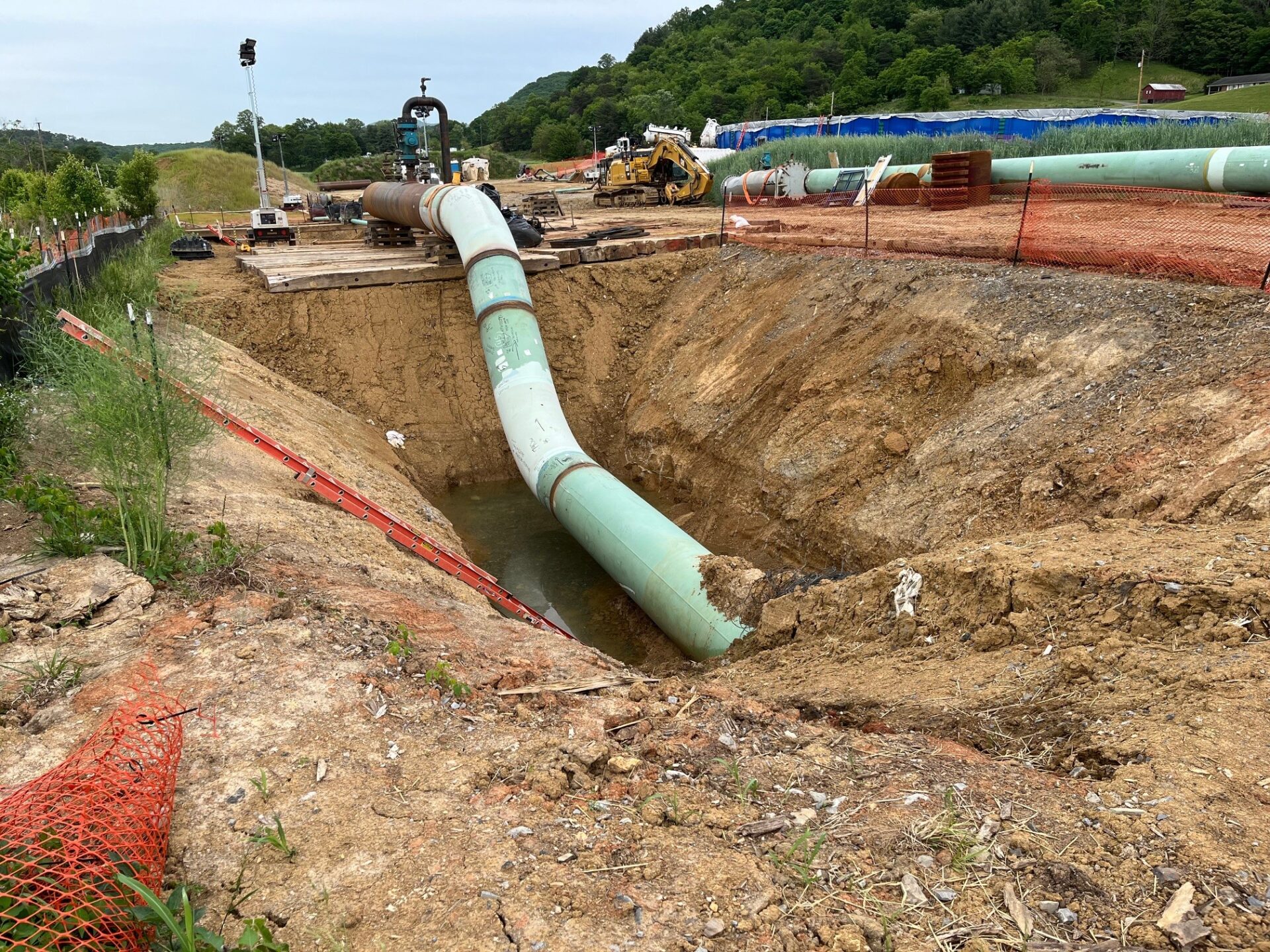A week after a section of the Mountain Valley Pipeline ruptured during testing, its builder says the failure shows the testing is working as designed and intended.
Part of the pipe burst on May 1 at Bent Mountain in Roanoke County, Virginia, releasing an unknown quantity of municipal water used to pressure test the line.
Initially, the only way the public knew about the incident was because a landowner reported the sediment-laden water had inundated her property to the state’s Department of Environmental Quality.
On Wednesday, Natalie Cox, a spokeswoman for Equitrans Midstream, said the company notified state and federal regulators about the rupture and that the released water had dissipated by the next day.
“There were no injuries reported, and all appropriate state and federal agencies were notified,” she said. “By Thursday morning, the released water had dissipated and temporarily affected tributaries had returned to pre-hydrotesting conditions.”
Cox said the company has resumed hydrostatic testing of the pipeline, including where it ruptured, and has successfully completed the process on 269 miles of the route.
Cox added that no other sections had failed and that last week’s failure proves the testing works. The damaged section will be sent to a laboratory for analysis, she said.
“Importantly, the disruption of this one hydrotest does, in fact, demonstrate that the testing process is working as designed and intended,” she said.
The 303-mile, 42-inch diameter pipeline, which stretches from Wetzel County, West Virginia, to Pittsylvania County, Virginia, has been one of the most contested fossil fuel infrastructure projects of recent years.
The pipeline’s construction began in 2018 and was periodically paused because of court challenges. Last year, Congress required, as part of a spending deal, that the pipeline be completed.
If the Federal Energy Regulatory Commission approves the pipeline to begin operating in the coming weeks, the $7.85 billion project will have more than doubled in cost.
Equitrans Midstream has asked FERC to approve the pipeline’s operation by May 23. On Wednesday, a group of 18 Virginia lawmakers sent FERC a letter asking them to deny the request.
Since October, the Mountain Valley Pipeline has been under an agreement with the Pipeline and Hazardous Materials Safety Administration to ensure sections of pipe maintained their integrity after they were exposed to weather during the long pauses in construction activity.
Pipeline opponents warned the exposure may have degraded the pipe’s corrosion-resistant coating.
When it starts operating, the pipeline will carry as much as 2 billion cubic feet a day of gas.
Tate reported this story from Floyd, Virginia.
